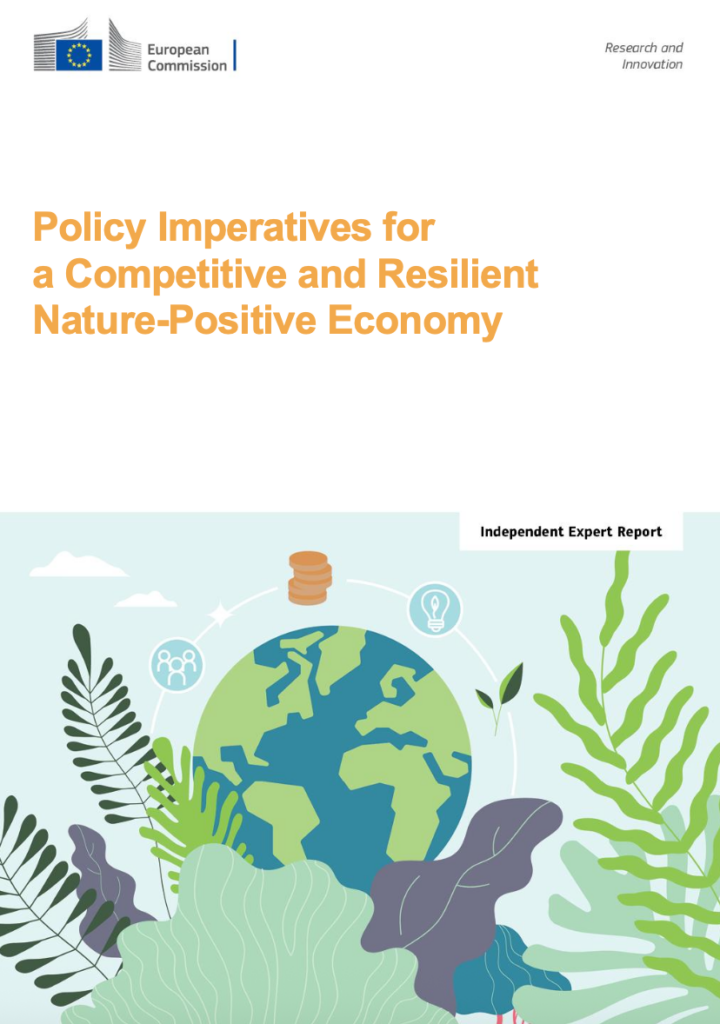Launched! Policy Imperatives for a Competitive and Resilient Nature-Positive Economy
October 22, 2025 | News
Drawing on insights from 44 EU-funded R&I projects, this publication outlines the case for a Nature-Positive Economy (NPE) and the pathways to achieve it. It shows how embedding nature at the core of EU policies can secure Europe’s resilience, prosperity, and global leadership. Urgent action is needed through strategic investment, coherent regulation, empowered local engagement, and systemic reform. Transitioning to a NPE is essential to deliver the European Green Deal, the EU Biodiversity Strategy, and the Kunming-Montreal Global Biodiversity Framework, ensuring economic growth within planetary boundaries while restoring nature for future generations.
Developed with the coordination of Invest4Nature under NetworkNature’s NbS Task Force 3: Finance and Business Models (for NbS) in a Nature-Positive Economy, this new EC Expert publication brings together insights from 45 EU funded research and innovation projects to chart the course towards a competitive and resilient Nature-Positive Economy (NPE).
A nature-positive economy ensures that the net outcome of all economic activities leads to an absolute increase in nature, driving both ecological recovery and prosperity for all. It is an economy that aligns environmental, economic and societal goals, where restoring ecosystems and safeguarding biodiversity become integral to innovation, competitiveness and resilience.
The report highlights that nature loss is not only an ecological crisis but a systemic economic and financial risk. Over two thirds of the EU’s Gross Value Added is dependent on nature, and 75 percent of euro area bank loans are linked to companies reliant on ecosystem services. Yet, the transition towards a nature-positive economy presents immense opportunity, with up to 10 trillion dollars in annual business potential and nearly 400 million jobs by 2030.
Amid competing policy priorities and budgetary pressures, this publication calls for transformative change in Europe’s economic and financial systems. It urges decision makers to safeguard biodiversity targets in evolving fiscal, industrial and competitiveness frameworks, particularly within the next Multiannual Financial Framework (2028 to 2034).
Decarbonisation remains essential to tackling the climate crisis, but it will not on its own halt biodiversity loss. The report underlines the need for integrated policy action to address all drivers of nature degradation, ensuring that nature restoration and protection stand as central pillars of Europe’s economic future.

